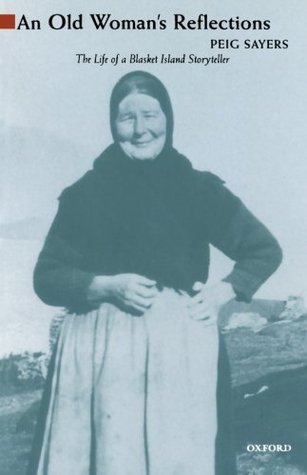
This collection reaffirms Peig Sayer’s position in the first rank of Irish storytellers and firmly establishes her tales in the canon of Irish oral literature.

She emerges as a warm and authentic storyteller, with a ready sense of humour, a deep knowledge of traditional narrative and highly skilled in its presentation. Here Peig tells her versions of international folktales, a Fenian tale, some prayers, migratory legends and historical and supernatural lore, illustrated in paintings by her son, Micheál Ó Gaothín. She emerges as a warm and authentic storyteller, with a ready sense of humour, a deep knowledge of traditional narrative and highly skilled in its presentation. In Not the Final Word these interviews are published for the first time, in both Irish and English, along with a substantial introduction and detailed annotation. In her old age, Peig Sayers, recounted her life to her son who recorded the. As part of an effort to explode a patriarchal, sanitized myth, I want to reexamine the life story Peig in the context of Sayers’s larger oeuvre, including An Old Woman’s Reflections (1939. She was more than happy to be recorded, and pleased to be visited by old friends, all of whom spoke fluent Kerry Irish. The thesis offers a new analysis of Lavins writing that tracks major themes. In January 1952, six years before she died, Peig Sayers was interviewed by a team from the Irish Folklore Commission in St Anne’s Hospital, Dublin.

The latest political news, analysis and comment from The Irish Times. * * With downloadable audio recordings * * Joe Humphreys on how Peig Sayers, the storyteller-sage, can help us make sense of.


 0 kommentar(er)
0 kommentar(er)
